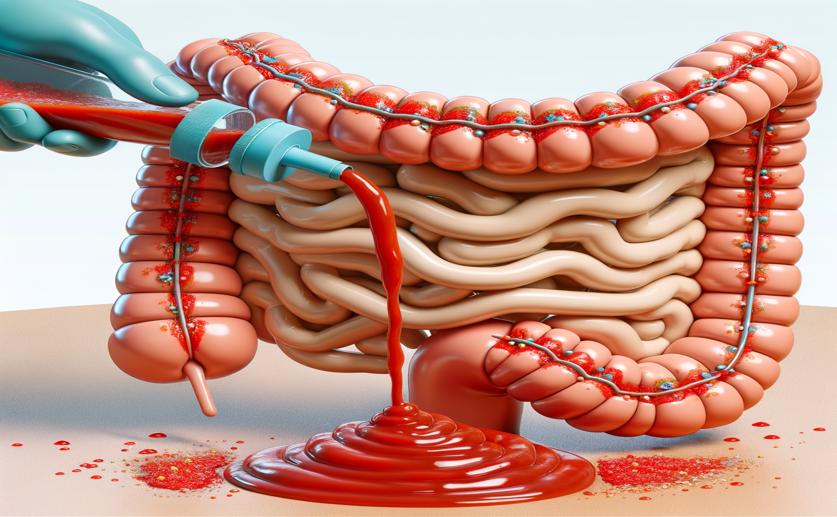
How Fermented Ketchup Affects Gut Health in a Lab-Simulated Colon Model
Jim Crocker
16th August, 2024

Image Source: Natural Science News, 2024
Key Findings
- Researchers at the Warsaw University of Life Sciences found that beetroot ketchup, both fermented and non-fermented, can positively influence gut microbiota
- Beetroot ketchup increased beneficial butyrate-producing bacteria, which are important for colon health and have anti-inflammatory properties
- The study also showed a reduction in harmful bacteria associated with gut inflammation, suggesting potential health benefits of beetroot ketchup
References
Main Study
1) Gut microbiota modulatory capacity of fermented ketchup in a validated in vitro model of the colon.
Published 15th August, 2024
https://doi.org/10.1016/j.foodres.2024.114801
Related Studies
2) Microbiota Features Associated With a High-Fat/Low-Fiber Diet in Healthy Adults.
3) Butyrate Alters Pyruvate Flux and Induces Lipid Accumulation in Cultured Colonocytes.
4) The controversial nature of the Weissella genus: technological and functional aspects versus whole genome analysis-based pathogenic potential for their application in food and health.
5) Effect of Red-Beetroot-Supplemented Diet on Gut Microbiota Composition and Metabolite Profile of Weaned Pigs-A Pilot Study.



 7th July, 2024 | Jenn Hoskins
7th July, 2024 | Jenn Hoskins